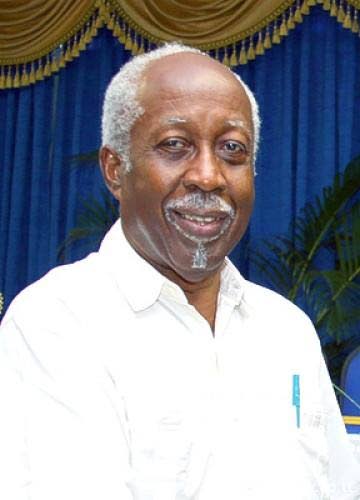The public disservice?

REGINALD DUMAS
THE Prime Minister was quoted (Newsday, February 15) as saying that our 1962 Constitution “in many areas is inappropriate for a TT in the 21st century.” (What of our 1976 Constitution, I wonder?) He didn’t list the areas, but he did focus on the public service as one of them.
That body’s slow pace of doing things, he contended, is caused by a lack of vision. He cast a disapproving eye over today’s permanent secretaries (PSs) – they “have not had the pathway of the experts we had before (as PSs),” and many of them “are not managers and do not assume managerial responsibility for the departments that they head…”
Towards rectifying this perceived deficiency, he suggested that PSs be drawn from the private sector as well as the public service itself. “(Private) sector (people),” he reasoned, “can bring management skills to the public service…”
He rightly anticipated pushback against his suggestion: the response he was “most likely to get is that (he is) threatening the Constitution because (that document) says how the public service should be managed.” I have a surprise for him (and others): I agree in principle with his proposal, and I do so on the basis of lengthy personal familiarity with the service.
In June 2009, nearly 13 years ago, I addressed the Public Services Association Tobago branch on then PM Patrick Manning’s “Working Document on Constitutional Reform.” (For the record, I described that document, its occasional nuggets of societal good sense notwithstanding, as “one of the most dangerous and regressive proposals for concentration of state power in one person that I have ever seen in any society wishing to call itself, and be called, democratic.”)
On the issue of PSs from the private sector, I said this: “I am…heartened by the proposal which I have long advocated, that a candidate for the position of permanent secretary could come from either the public sector or the private sector. I recognise that many in this gathering would disagree that permanent secretaries could come from the private sector. I regret that disagreement, but my own direct experience as public servant No.1 persuaded me that new blood was necessary. It is even more necessary today, if I am to believe some of the horror stories I’ve been hearing about the performance and behaviour of a number of serving permanent secretaries.”
I went on: “For that reason in particular, I’m not going to object in principle – and I stress in principle – to the next Manning proposal, that permanent secretaries be appointed on contract for up to five years, renewable. But we must be vigilant…” We must indeed. Given the number of well-paid private sector incompetents I’ve come across, vigilance is always a priority. The possession of management skills is not always assured.
Canada has the same dual private sector/public sector system. There the PS is called “deputy minister” (a term that our small-island politicians, racked by insecurities of status, would find impossible to accept. But what’s important is performance, not title.) Canada, to be sure, is vastly larger than, and culturally different from, TT, but certain key principles and patterns of politico-administrative conduct are, as I recall from my time in that country, similar to ours, and the Government should seek advice from them.
There is a related factor the PM seems not to have mentioned. Section 85(1) of the Constitution reads: “Where any minister has been assigned responsibility for any department of Government, he shall exercise general direction and control over that department, and, subject to such direction and control, the department shall be under the supervision of a permanent secretary whose office shall be a public office.”
The word “management” doesn’t appear; in fact, it’s altogether absent from the Constitution. But a supervisor is not a manager; not in my book, anyway. So a PS is now constitutionally empowered NOT to manage, and the PM may wish to take that into account.
I first raised this matter in 1985 with then PM George Chambers; I’ve raised it with every administration since. I’ve had no success. I wonder why. After all, I’m only proposing a small constitutional amendment which needs just a simple parliamentary majority for adoption: replace the word “supervision” in section 85 with the word “management.” And hold PSs accountable.
Ministers too must be held accountable. We can complain all we like about public servants – they can’t answer in public, which makes them a very soft target – but let’s not forget the damage that politicians, concerned principally with office and with “general direction and control” (especially control), have visited upon the public service over the decades. I could give you many stories. Public service reform must include politicians.


Comments
"The public disservice?"